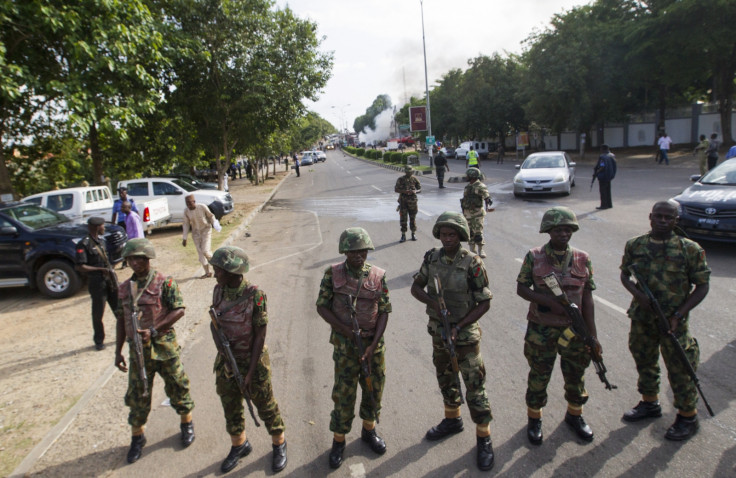Nigeria Boko Haram Insurgency: Islamist Militants Seize Another North-Eastern Town

Islamist terror group Boko Haram has captured another town in north-eastern Nigeria, according to witnesses, as its insurgency in the country's northern regions continues to evolve.
A shift in operational strategy has seen the group move from hit-and-run attacks to the seizure of territory as it seeks to create an Islamic Caliphate in Nigeria's majority-Muslim northern regions.
The group's militants launched an assault on the town of Buni Yadi in Yobe State last month but it has now taken control of the main government building and the town itself as its territorial ambitions continue to increase.
AFP reported that the group's flag had been raised over the town and executions had taken place. Two people were allegedly killed for smoking cigarettes.
Abdullahi Bego, the spokesman for Yobe's Governor Ibrahim Geidam, confirmed the militants had caused the town's citizens to flee.
"As I speak, there are no military in Buni Yadi and locals say that Boko Haram come and go as they please," Bego said.
Residents who managed to flee the assault said they were moving to other areas of Yobe state.
"So many people from Buni Yadi have fled to the state capital Damaturu," said trader Surajo Muhammad.
"I left Buni Yadi yesterday (Wednesday) because it was no longer safe for me and my family."
Tijjani Bukar, who also fled, said: "I couldn't stay any longer because I came to realise these people have come to stay.
"I thought they would be there for a few days but from our understanding, they have turned the town into their [territory]."
The group have now added the town to the capture of the towns of Damboa and Gwoza in Borno State.
"The capture and holding of territory presents a significant evolution in Boko Haram's modus operandi," said Ryan Cummings, chief Africa analyst at the South Africa-based crisis management group Red 24.
Three states - Borno, Yobe and Adamawa - have been under a state of emergency since May 2013 as Boko Haram's insurgency continues to blight Jonathan Goodluck's administration.
Attacks attributed to the group have occurred in north-eastern towns and cities such as Maiduguri and Kano but their reach has started to expand southwards, with bomb blasts striking the Middle Belt cities of Jos and the Nigerian capital, Abuja.
Earlier this year, the group kidnapped more than 200 schoolgirls in the village of Chibok, bringing global attention to the west African nation's fight against terrorism.
According to Human Rights Watch, Boko Haram has killed at least 2,053 people since the start of 2014.
© Copyright IBTimes 2024. All rights reserved.






